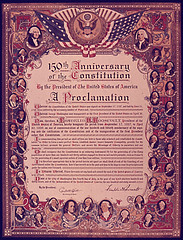Separately owned property does not automatically become marital upon marriage, even when it is placed into joint names. If one party invested separate funds into a marital asset, if they can trace out or prove that investment, they may be entitled to a return of the asset or the amount invested plus appreciation. This is a substantial issue in many cases.
The goal of the tracing process is to link every asset to its primary source, which is either separate property or marital property. Harris v. Harris, 2004 Va. App. LEXIS 138 (2004). See also Mann v Mann, 22 VA. App 459; 470S.E. 2d 605, 1996, holding that the interest passively earned on the husband’s premarital assets are separate.
The Code of Virginia, §20-107.3(A)(1)(iv) defines “separate property” as “that part of any property classified as separate pursuant to subdivision A.3. Code of Virginia, §20-107.3(A)(3)(e) provides that “when marital property and separate property are commingled into newly acquired property resulting in the loss of identity of the contributing properties, the commingled property shall be deemed transmuted to marital property. However, to the extent the contributed property is retraceable by a preponderance of the evidence and was not a gift, the contributed property shall retain its original classification.” (emphasis added). Code ofVirginia, §20-107.3(A)(3)(g) provides that section (e) of this section shall apply to jointly owned property. No presumption of gift shall arise under this section where (ii) newly acquired property is conveyed into joint ownership.
The increase in value of separate property during the marriage is separate property, unless marital property or the personal efforts of either party have contributed to such increases and then only to the extent of the increases in value attributable to such contributions. The personal efforts of either party must be significant and result in substantial appreciation of the separate property if any increase in value attributable thereto is to be considered marital property. See Code ofVirginia, §20-107.3(A)(3)(a). All of the increases of the real estate in this case are attributable to market fluctuations.
Tracing involves a two-prong, burden shifting test. First, a party has to prove he invested separate property into the real estate, which he did. It is undisputed that all of the money used to purchase the real estate was his traceable separate property. Then the burden shifts to the Complainant to prove, by clear and convincing evidence, that the transmutation was a gift. (See Va. Code Ann. § 20-107.3(A)(3)(g)) and Turonis v Turonis, 2003 Va. App. LEXIS 130, (2003)). There is no presumption of a gift that arises from the fact that one party put the real estate in the parties’ joint names. There is no evidence of a gift in this case. (See also von Raab, 26 Va. App. at 248, 494 S.E.2d at 160 and Utsch v. Utsch, 38 Va. App. 450, 458, 565 S.E.2d 345, 349 (2002) If the party claiming a separate interest proves retraceability and the other party fails to prove transmutation of the property by gift, “the Code states that the contributed separate property ‘shall retain its original classification.'” (emphasis added) Hart v Hart, 27 Va. App. 46, 68, 497 S.E. 2d 496, 506 (1998). (quoting Code § 20-107.3(A)(3)(d),
]]>
The second issue is the passive appreciation in the value of the jointly titled real estate. Pursuant both to Virginia Code Va.20-107.3(A), and using the Brandenburgformula, which has never been held erroneous by the Virginia appellate courts, (See Turonis, Supra) All of the passive appreciation on a party’s separate investment in real estate is also separate property. ” This issue was addressed in Kelley v. Kelley, No. 0896-99-2, 2000 Va. App. LEXIS 576 (Ct. of Appeals Aug. 1, 2000) holding that the trial court erred in failing to recognize that passive appreciation on the husband’s separate investment to the real estate was also the husband’s separate property. (emphasis added0. This issue was also addressed in the case of Stark v. Rankins, 2001 Va. App. LEXIS 375 (2001), holding that “in pertinent part, Code § 20-107.3(A)(1) provides that “the increase in value of separate property during the marriage is separate property, unless marital property or the personal efforts of either party have contributed to such increases and then only to the extent of the increases in value attributable to such contributions.” Read as a whole, subsection (A) of the statute contains a “presumption that the increase in value of the separate property is separate.” (emphasis added) Martin v Martin, 27 Va. App. 745 (1998). Moreover, we have held that the trial judge has a duty “to determine the extent to which [a spouse’s] separate property interest in the home increased in value during the . . . marriage.” Id. at 752, 501 S.E.2d at 453. There is a statutory presumption that the increase in value of the separate property is separate. Id.
By contrast, although the customary care, maintenance, and upkeep of a residential home may preserve the value of the property, it generally does not add value to the home or alter its character. Martin, Supra. The Court held that the Wife’s evidence that at some time during the twelve years of marriage she personally painted, wallpapered, and carpeted parts of the house does not prove a “significant” personal effort.” These activities constitute part of the customary maintenance and upkeep that homeowners typically perform in order to preserve the home’s value; they do not by their nature impart value to the home. (See also Biviano v. Kenny, 2002 Va. App. LEXIS 157 (2002)). The Code of Virginia, Section 20-107.3(A)(3)a) places the burden on the non-owning spouse to prove that “(i) contributions of marital property or personal effort were made and (ii) the separate property increased in value.” Hoffman v. Hoffman, 2004 Va. App. LEXIS 216 2004). In pertinent part, Code § 20-107.3(A)(1) provides that “the increase in value of separate property during the marriage is separate property, unless marital property or the personal efforts of either party have contributed to such increases and then only to the extent of the increases in value attributable to such contributions.” Read as a whole, subsection (A) of the statute contains a “presumption that the increase in value of the separate property is separate.” Martin v Martin, 27 Va. App., 745, 753, 501 S.E. 2d 450, 454 (1998). Moreover, we have held that the trial judge has a duty “to determine the extent to which [a spouse’s] separate property interest in the home increased in value during the . . . marriage.” Id. at 752, 501 S.E.2d at 453.Stark v. Rankins, 2001Va. App. LEXIS 375 (2001).
In the case of Hargrave v. Wienckowski, 2000 Va. Cir. LEXIS 208, the Court states that “traceable separate property that is commingled with marital property, whether to acquire new property or otherwise, is subject to being restored to the contributing party.” The Court analyzes the issue and finds that “parties are under no requirement to contribute their separateproperty, whether acquired before or during the marriage, to the marriage. If a party does so, he or she does so voluntarily and should be reimbursed for it unless the party intended to make a gift of such property to his or her spouse.” This holding is consistent with the purpose of the Virginia legislature in enacting the equitable distribution law which was to give courts power to compensate a spouse for his or her contribution to the acquisition of property obtained during the marriage. See Sawyer v. Sawyer, 1 Va. App. 75, 335 S.E.2d 277 (1985). For example, in Beck v. Beck, 2000Va. App. LEXIS 658 (2000), the Court held that since the wife contributed 71.3% from her separate funds to acquire the property, she was entitled to 71.3% of the equity in the real estate.
Holden v Holden, 31 VA. App 24; 520 S.E. 2d 842, 1999 involved the same issue. The husband sold comic books for ,000 to raise the down payment on real estate acquired during the marriage. He deposited the money into a joint account. The Court held that the ,000 was his separate money. “Separate property does not become untraceable merely because it is mixed with marital property in the same asset. As long as the respective marital and separate contribution to the new asset can be identified, the court can compute the ratio and trace both interests. The Husband is not required to segregate the ,000 from all other marital funds in order to claim a separate interest. (Citing Rahbaran, 26 Va. App. At 207, 494 S.E. 2d at 141). See Whitehead v Whitehead, 2001 Va. App. LEXIS 381, 2001, holding that the husband’s withdrawals from the parties’ joint account should have been viewed as his reclamation of separate property, to the extent of his contribution, rather than withdrawal of marital funds. The Husband had ,100.00 in separate funds in the account. The Court held that to the extent the withdrawals equaled ,100.00, they should have been viewed by the court as his reclamation of his separate property.
If tracing separate property is an issue in a case, records proving the separate ownership are very important. Records include bank accounts, HUDs, deeds, mortgage and payments. Property acquired during the marriage or jointly titled is presumed to be marital without proof of a separate investment or ownership. Of course, the easiest way to resolve this issue is a prenuptial agreement.
Ms. Solomon became an attorney to help people find justice in an often unjust world. Her goal is to provide high quality, affordable legal services. Ms. Solomon is an experienced attorney offering fast, simple and affordable solutions to your financial and domestic problems. She is also skilled in corporate and government contracts, has a comprehensive business background, and is renown for her negotiating skills. She has practiced law for over 20 years and received awards as follows: Graduated with distinction from George Mason law school with a rank of “first” in class; Recognition for outstanding Pro Bono contributions to those in need; George Mason Hornbook Award for Outstanding Scholastic Achievement; American Jurisprudence Awards for property, remedies, antitrust, conflict of law, and communications law; Founder and Director of the Kare 4 Kidz Foundation.
www.marilynsolomonlaw.com
Article from articlesbase.com










